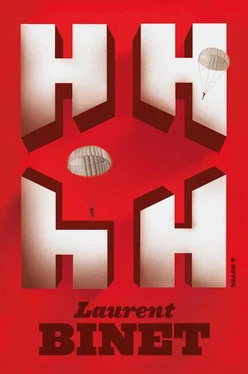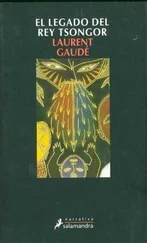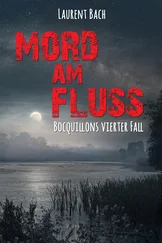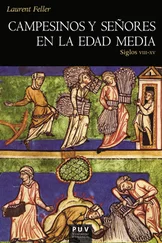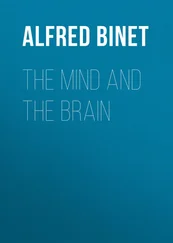At 9:00 a.m., the first German tank enters the city.
Actually I don’t know if it was a tank that first entered Prague. The most advanced troops seem largely to have driven motorbikes with sidecars.
So: at 9:00 a.m., German soldiers on motorbikes enter the Czech capital. Here they discover local Germans welcoming them as liberators, which makes them relax a little after several days of high tension. But they also see Czechs shaking their fists, shouting hostile slogans, and singing their national anthem, which is more worrying.
A dense crowd has gathered on Václavské náměstí, the Czech equivalent of the Champs-Élysées, and in the city’s main thoroughfares Wehrmacht trucks are soon blocked by the vast numbers of people. The German troops don’t know where they stand.
But this is far from an insurrection. Acts of resistance are limited to throwing snowballs at the invaders.
The main strategic objectives are achieved without a shot being fired: control of the airport and of the War Ministry. Above all the Germans control Hradčany—the castle perched high on its hill, the seat of power. Before 10:00 a.m., artillery batteries are ranged on the battlements, aimed at the city below.
The only real problems are logistical: the most difficult test faced by German vehicles is the blizzard, and here and there we find broken-down trucks, tanks immobilized by mechanical troubles. The Germans also have problems finding their way in Prague’s maze of streets: we see them asking directions from Czech policemen, who answer obligingly—out of Pavlovian respect for the uniform, I suppose. Nerudova, the beautiful street decorated with banners that leads up to the castle, is blocked by a lost armored car. While the driver gets out to ask the way from a delegation of Italian diplomats, the soldier remains alone on his gun turret, his finger tensed on the machine-gun trigger, watched by the silent, gawking crowd that surrounds him. But nothing happens. The general in command of the German vanguard has nothing worse to complain about than acts of minor sabotage: a few slashed tires.
Hitler can prepare for a peaceful visit. Before the end of day, the city is “secured.” Troops on horseback move calmly along the banks of the Vltava. A curfew is decreed, forbidding Czechs to go outside after 8:00 p.m. The doors of hotels and official buildings are patrolled by German guards carrying long rifles with bayonets. Prague has fallen without a fight. The cobblestones of the city are stained with dirty snow. This is the beginning of a long, dark winter for the Czechs.
Passing the endless, serpentine line of soldiers marching along the icy road, a convoy of Mercedes cars makes its way laboriously toward Prague. All the most eminent members of Hitler’s clique are here: Göring, Ribbentrop, Bormann. And in the Führer’s own car, next to Himmler, sits Heydrich.
What goes through his mind when, after this long journey, they finally arrive at their destination? Is he struck by the mazelike beauty of the city of a hundred towers? Or is he too busy savoring the importance of his position? Does he grow irritated when the convoy gets lost in the city conquered by the Führer that very morning? Or is there, in his calculating brain, the first glimmer of an idea that his career will one day take him back to the former Czech capital?
Today, the future Hangman of Prague, whom the Czechs also nicknamed “the Butcher,” sees for the first time the Bohemian city of kings: the streets are deserted because of the curfew; the tire tracks of the German army are visible in the mud and snow on the roads; an impressive calm reigns. The windows on the high street reveal expensive glassware boutiques and delicatessens; in the heart of the Old Town stands the Opera House, where Mozart created Don Giovanni ; the cars drive on the left, as in Britain. For the first time, Heydrich sees the snaking road that leads to the castle, gloriously isolated on its hill, and the beautiful and disturbing statues that decorate the main entrance, guarded by the SS.
The convoy enters what was until yesterday the presidential palace. A swastika flag flies over the castle, signaling the presence of its new masters. When Hácha returns from Berlin—his train still hasn’t arrived, having been conveniently delayed in Germany—he will use the servants’ entrance. I suppose he will feel the full ironic weight of the situation, having been so thrilled by the presidential welcome he received in Berlin. The president is now nothing but a puppet, and they’re making sure he knows it.
Hitler and his followers settle into their rooms in the castle. The Führer climbs the stairs to the first floor. There is a famous photo of him, hands leaning on the sill of an open window, contemplating the city below. He looks pleased with himself. Afterward he goes back downstairs and enjoys a candlelit dinner in one of the dining rooms. Heydrich can’t help noticing that the Führer eats a slice of ham and drinks a Pilsner Urquell, the most famous Czech beer—Hitler, who is a teetotaler and vegetarian. He keeps saying that Czechoslovakia has ceased to exist, and no doubt he wishes to mark the historic importance of this day—March 15, 1939—by departing from his usual eating habits.
The next day, Hitler makes this proclamation:
For a thousand years, the provinces of Bohemia and Moravia have been part of the German people’s living space. Czechoslovakia has shown its inability to survive, and today it is reduced to a state of complete dissolution. The German Reich cannot tolerate continual difficulties in this region. So, out of self-preservation, the German Reich is now determined to intervene. We will take decisive measures in order to establish the basis of a rational order in central Europe. Over a thousand years of its history, the Reich has proved—with the greatness and qualities of the German people—that it alone is qualified to undertake this task.
In early afternoon, Hitler leaves Prague. He will never set foot in the country again. Heydrich goes with him, but he will be back.
“For a thousand years, the provinces of Bohemia and Moravia have been part of the German people’s living space.”
It’s true that in the tenth century—that is, a thousand years earlier—Václav I, the famous Saint Wenceslaus, swore allegiance to the no-less-famous Henry I, the Fowler, at a time when Bohemia was not yet a kingdom, and when the king of Saxony was not yet head of the Holy Roman Empire. However, Václav was able to keep his sovereignty, and it wasn’t until three centuries later that German settlers came to Bohemia on a large scale—and even then, their arrival was peaceful.
So it’s true that the Czech and German countries have always been closely linked. It’s also true that Bohemia has been almost continuously part of the German sphere of influence. But it seems to me utterly wrong to talk about German Lebensraum with regard to Bohemia.
It was also Henry the Fowler—Nazi icon, idol of Himmler—who began the Drang nach Osten , the drive toward the east, which Hitler would claim as his inspiration in order to legitimize his desire to invade the Soviet Union. But Henry the Fowler never sought to invade or colonize Bohemia. He contented himself with an annual tribute. Even after this, there has never, as far as I know, been any German colonization forcibly imposed on Bohemia. The flow of German settlers in the fourteenth century was a response to the Czech sovereign’s demand for specialized labor. Finally, no one had ever before considered ridding Bohemia and Moravia of their Czech inhabitants. So it’s safe to say that the Nazis, once more, are political innovators. And Heydrich, of course, is in the thick of it.
Читать дальше
